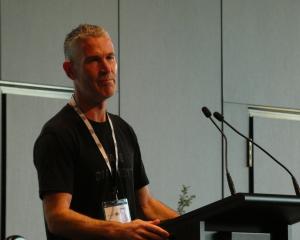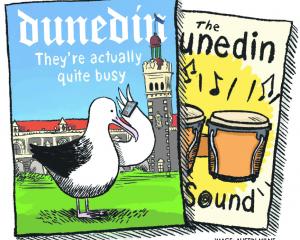Mr Whitehead agreed to SCF joining the government guarantee scheme, which protected investors from the collapse of the Timaru-based finance company, but which ultimately cost taxpayers $800 million after only half of the original $1.6 billion bail-out funds were recovered.
Statements after the trial ended indicated Mr Whitehead was not available.
Justice Paul Heath delivered his verdict this week finding the three defendants - SCF principal Allan Hubbard's former chief executive Lachie McLeod and two former fellow directors, lawyer Edward Sullivan and accountant Robert White - not guilty on the central charge of deceptive conduct to enable the finance company to join the Crown Retail Deposits Guarantee Scheme.
Justice Heath said the Crown had failed to prove beyond reasonable doubt that misrepresentation (via a particular South Canterbury Finance prospectus) induced Mr Whitehead to sign the guarantee deed on November 19, 2008.
Mr Whitehead was not called to give evidence, leaving Justice Heath to write in his judgement he was left in the position of determining whether the Crown had proved the central charge beyond reasonable doubt on the basis of relevant documentary and oral evidence by a Treasury official who was not involved in the decision to allow South Canterbury into the scheme.
''As a matter of law, a court is entitled to draw an adverse inference against a party if a witness is not called and evidence of a fact is exclusively within the knowledge of that party.
"In the absence of evidence from the secretary, I could not exclude the reasonable possibility that he would have signed the guarantee deed on November 19, 2008, even if the Crown was right about the alleged material omissions.
"That is why I found Messrs Sullivan, White and McLeod not guilty on count 10.''
Justice Heath said it was not suggested Mr Whitehead was unavailable to give evidence.
During the course of the trial, the Crown sought to supplement its evidence on this count by calling one of the officials who made the recommendation to the secretary.
Justice Heath declined permission for that to be done.
The Serious Fraud Office came in for criticism after the trial for the way it handled the investigation of SCF.
Former SFO director Adam Feeley this week defended his former employer's handling of the case but shed no light on the key issue of why Mr Whitehead was not called.
Justice Heath's more than 220-page decision shows in depth the considerable activity conducted by Mr Hubbard and his fellow directors over whether to enter the guarantee scheme.
Directors Mr White and Mr Sullivan identified existing business practices of South Canterbury as a potential impediment to entry into the scheme, particularly as a result of provisions in the proposed guarantee deed dealing with related party lending.
Several loans were identified which Mr Hubbard had indicated should be written off partially or wholly by December 31, 2008.
The amount involved was likely to be between $100 million and $150 million.
Mr Hubbard identified the need for additional funding of about $88 million to avoid reporting a net loss of about $70 million.
Mr Hubbard provided six options in a paper sent to directors on October 30, 2008, involving cash raising, asset buying or winding up.
An email Mr White sent to Mr McLeod on the same day ended with: ''We would be dead in the water in no time flat, and equally, any suggestion that we should contemplate backdating any of Allan's proposals would see the lot of us in jail before lunchtime.''
Justice Heath wrote it was clear Mr White was concerned about Mr Hubbard's apparent preference not to enter the guarantee scheme.
''That is clear from his observation that, in the prevailing economic climate, he could not see how South Canterbury could inform the market that it was not going to enter the government scheme without risking imminent demise.''
Mr White's email did not reveal what business practices SCF had been engaging in until that time that could have resulted in the men going to jail.
SCF was admitted to the scheme some time after November 10, 2008.
After initial attempts before admission to amend its terms, SCF made no further attempts.
John Park, a director at the Treasury, accepted when an extension of the scheme was offered in late August 2009, there was little option for the Crown but to retain SCF in the scheme.
Mr Park acknowledged the possibility of recapitalisation had been assessed as relatively low.
The Crown decided it was preferable to try to salvage SCF rather than immediately trigger its liability under the guarantee scheme.
''If it had become widely known that South Canterbury had not been granted an extension of the guarantee, there was likely to be a run on the company, leading to an imminent receivership. That would have triggered the Crown's obligation to pay under the guarantee,'' Justice Heath wrote.













